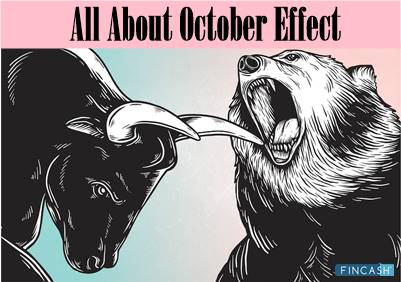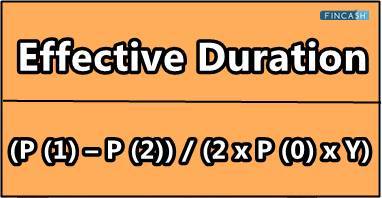The October Effect
The October effect refers to a Market oddity in which equities tend to fall in October. As most statistics contradict the notion, the October effect is thought to become more of psychological anticipation than reality. Several investors may get concerned in October because of previous market crashes that have occurred this month.
Why is October a Bad Month?
The events that have earned October the reputation for stock market losses have occurred across many years, but they include:

- The Great Depression of 1907
- Black Tuesday (1929)
- Black Thursday (1929)
- Black Monday (1929)
- Black Monday (1987)
The great collapse of 1987, which happened on Oct. 19 and saw the Dow plummet 22.6% in a single day, is widely considered the biggest single-day decrease in history. The other dark days were a component of the process that caused the Great Depression and unequalled economic disaster until the mortgage meltdown nearly wiped out the whole global Economy.
Is October Good for Stocks?
One of the most prominent so-called calendar effects, the October effect, claims that October is a month when several of the worst stock market disasters in history happened. While there is no scientific proof that equities trade lower in October, the effect's psychological expectations remain put. However, the this effect is sometimes exaggerated as well. Despite the ominous titles, this seeming cluster of days is statistically insignificant. In fact, September has had more negative months in the past than October.
The month of October has witnessed the end of more bear markets than the beginning of them. This puts October in a unique position for contrarian Investing. If investors have a pessimistic outlook on a month, there will be opportunities to buy throughout that month.
What Happened to Banks after the Crash of the Stock Market?
As corporations and individual investors invested in equities, the stock market crisis damaged the economy. Businesses lost money when the stock market plummeted. Customers also lost money since numerous banks invested their funds without their knowledge or authorization. Banks lost millions and foreclosed on the company and personal loans; as a result, putting pressure on clients to repay their loans regardless of their financial situation.
Talk to our investment specialist
Disappearance of the October Effect
There is just no data to support the idea that October is a losing month if you look at all October monthly returns going back more than a century. Although various historical events have occurred in this month, they have largely remained in the collective memory due to the gloomy nature of Black Monday. Other months apart from October have also seen market crashes.
Even though many investors today have a stronger memory of the dot-com catastrophe and the 2008–2009 financial crisis, none of those days was given the dreaded "black name" to bear for their respective months. The collapse of Lehman Brothers occurred on a Monday in September, signalling a significant escalation in the global stakes of the financial crisis. However, it was not reported as a second Black Monday. The news media no longer prioritizes black days, and Wall Street doesn't appear interested in reviving the practice.
Furthermore, an increasingly global pool of investors does not share the same historical perspective when it comes to the calendar. The end of October effect was unavoidable because it was primarily a gut feeling blended with a few random chances to construct a tale. In some ways, this is terrible because financial calamities, panics, and crashes would be ideal for investors if they only happened once a year.
While the October Effect is a terrifying idea, you don't have to be overly concerned about it. Even though two genuine historical incidents may have contributed to the fear of losses in October, statistically speaking, you're more likely to make gains in in this month than losses.
Conclusion
Finally, this conclusion leads to a crucial lesson for novice investors: even professionals can make mistakes. The October Effect isn't the only stock market legend. However, it has led to investors withdrawing funds from the market throughout the month, incurring losses in the form of missing gains if they had just stayed invested.
Another important takeaway is that Following the Herd is never a wise idea. Those that do their homework do the best in the world of investment. So, the next time someone tells you that October is a bad month to invest, or that June is the best month to invest or anything else about investing your money, do your homework before acting on their advice.
All efforts have been made to ensure the information provided here is accurate. However, no guarantees are made regarding correctness of data. Please verify with scheme information document before making any investment.












